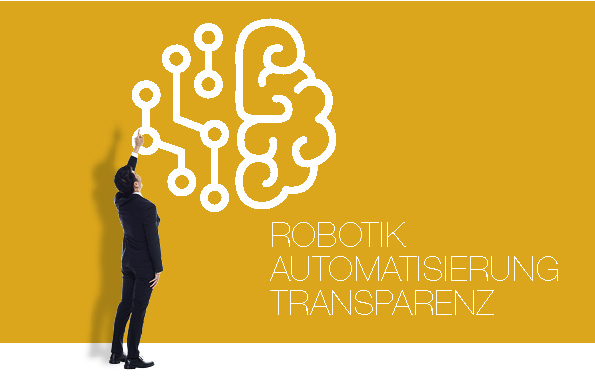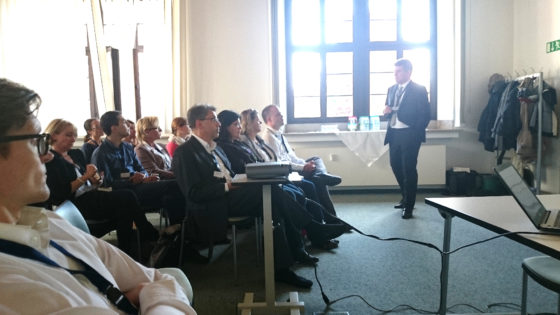 Künstliche Intelligenz sorgt für ein weiteres Upgrade der Controller-Rolle: vom „Business-Partner“ wird er zum unverzichtbaren „Pathfinder“, der Wege aufzeigen und Leitlinien setzen kann. Das weiß Stefan Schnell aus seiner Erfahrung bei BASF. Wie KI dort umgesetzt wird und wo sie beim Chemie-Konzern zum Einsatz kommt, berichtet Schnell beim Online-Event ICV Congress der Controller am 26./27. April.
Künstliche Intelligenz sorgt für ein weiteres Upgrade der Controller-Rolle: vom „Business-Partner“ wird er zum unverzichtbaren „Pathfinder“, der Wege aufzeigen und Leitlinien setzen kann. Das weiß Stefan Schnell aus seiner Erfahrung bei BASF. Wie KI dort umgesetzt wird und wo sie beim Chemie-Konzern zum Einsatz kommt, berichtet Schnell beim Online-Event ICV Congress der Controller am 26./27. April.
Im Themenzentrum „Künstliche Intelligenz im Controlling?“ nimmt Stefan Schnell die Zuhörenden mit in die Abläufe bei der BASF, Ludwigshafen. Als Senior Vice President ist er dort zuständig für Group Reporting & Performance Management und zeigt beim renommierten ICV-Fachtreffen, das zum ersten Mal in 45 Jahre ausschließlich online stattfindet, was Künstliche Intelligenz leisten kann. Schnell wird unter anderem zeigen, wie KI im Bereich Visualisierung und Analytics wertvolle Hilfe leistet und wie damit Finanzforecast, Liquiditätsplanung und Kreditmanagement unter anderem zu mehr Transparenz geführt werden.
In diesem Zusammenhang auch interessant: Das Interview der BASF Magazine-Redaktion mit Professorin Barbara Grosz über Künstliche Intelligenz. Die Higgins-Professoring für Naturwissenschaften an der Harvard University/USA forscht bereits seit den 70er-Jahren im Bereich KI. Im Gespräch mit der BASF erläutert sie
- was KI eigentlich bedeutet
- welchen Einfluss die Verarbeitung natürlicher Sprache auf den Fortschritt in der Entwicklung von KI hat
- was in der Kommunikation mehrerer Akteure im Detail passiert
- welche Treiber die KI-Technologien haben
- welche Herausforderungen zu meistern sind, bevor Mensch und Computer sich „natürlich“ unterhalten können
- welchen Einfluss Quantencomputer auf KI haben
- wo KI-Technologien die größte Bedeutung haben
- welche Auswirkungen KI auf Arbeitsplätze und die Rolle des Menschen hat
- welche Risiken und ethische Fragen zu beachten sind
- welches Einsatzgebiet für KI die Professorin für das aufregendste hält
 Artificial intelligence ensures a further upgrade of the controller role: from “business partners” they become indispensable “pathfinders” who point out ways and set guidelines. Stefan Schnell knows this from his experience at BASF. Schnell reports how AI is implemented there and where it is used in the chemical company at the online event ICV Congress of Controllers on April 26/27.
Artificial intelligence ensures a further upgrade of the controller role: from “business partners” they become indispensable “pathfinders” who point out ways and set guidelines. Stefan Schnell knows this from his experience at BASF. Schnell reports how AI is implemented there and where it is used in the chemical company at the online event ICV Congress of Controllers on April 26/27.
In the topic cluster “Artificial Intelligence in Controlling?” Stefan Schnell takes the audience into the processes at BASF, Ludwigshafen. As Senior Vice President, he is responsible for Group Reporting & Performance Management. At the renowned ICV conference, which takes place exclusively online for the first time in 45 years, he shows what artificial intelligence can do. Schnell shows, among other things, how AI can provide valuable help in the area of visualization and analytics and how it can lead to more transparency in financial forecasting, liquidity planning and credit management.
Also interesting in this context: BASF Magazine interview with Professor Barbara Grosz about artificial intelligence. The Higgins professor for natural sciences at Harvard University / USA has researched AI since the 1970s. In an interview with BASF, she explains
- what AI actually means
- what influence the processing of natural language has on the progress in the development of AI
- what happens in detail in the communication between several participants
- which drivers the AI technologies have
- which challenges have to be mastered before humans and computers can talk “naturally”
- what influence quantum computers have on AI
- where AI technologies are most important
- what effects AI has on workplaces and the role of people
- which risks and ethical issues have to be considered
- which area of application for AI the professor considers to be the most exciting



